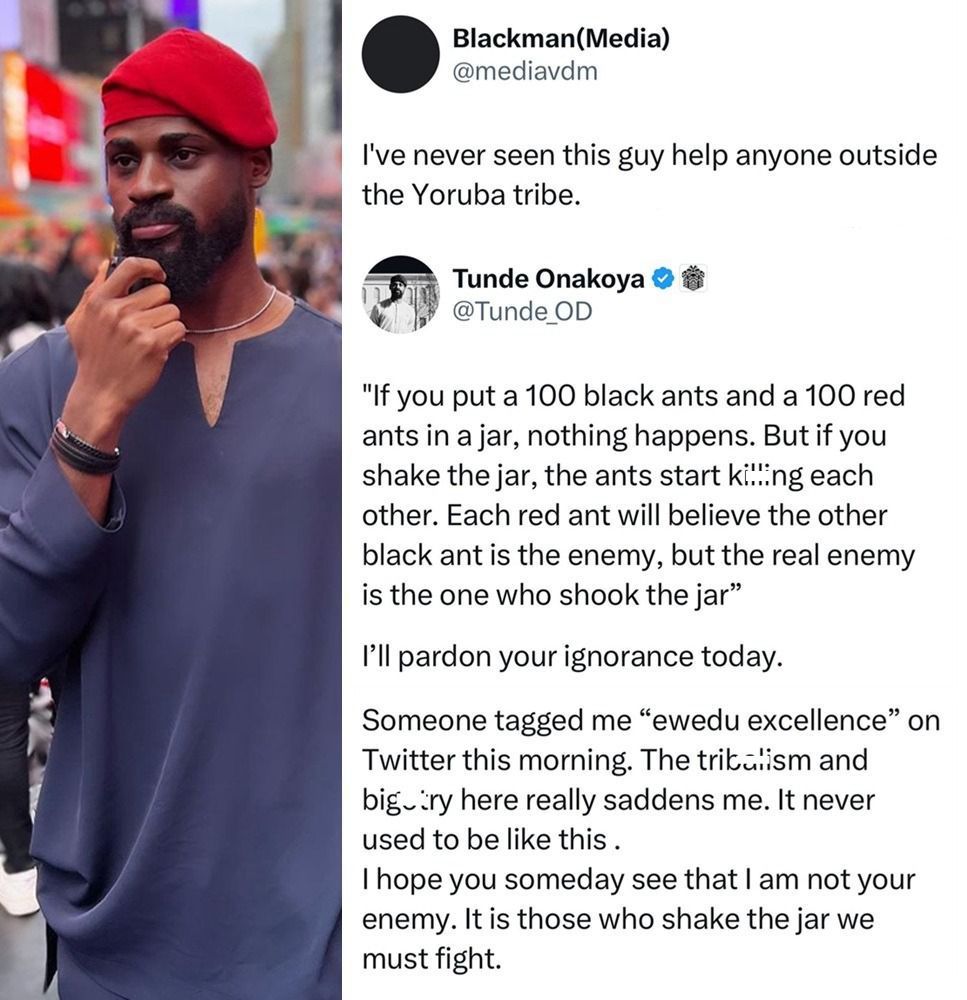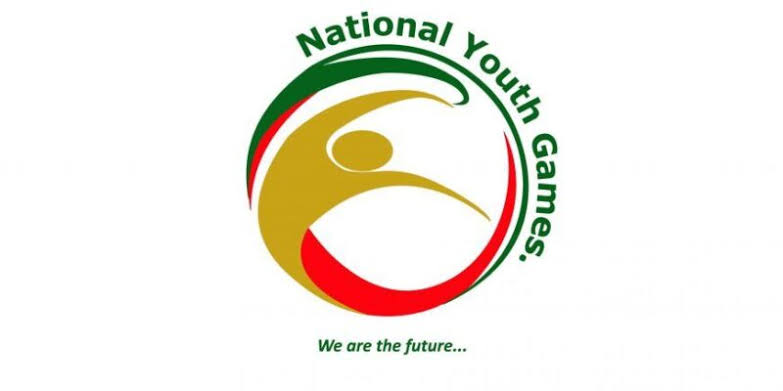
Not Your Enemy: Tunde Onakoya Shuts Down Tribalism With Powerful Metaphor

Renowned chess master and global education advocate Tunde Onakoya has once again captured the attention of the nation—not through his brilliant mind on the chessboard, but with a striking and thought-provoking response to a tribal accusation that surfaced online. The incident, which unfolded on social media platform X (formerly Twitter), started when a user with the handle @mediavdm claimed that Onakoya has never helped anyone outside his Yoruba tribe. The accusation, steeped in tribal sentiment, prompted an eloquent and graceful reply from the celebrated Nigerian.
"If you put 100 black ants and 100 red ants in a jar, nothing happens. But if you shake the jar, the ants start killing each other. Each red ant will believe the black ant is the enemy, but the real enemy is the one who shook the jar," Onakoya wrote in response, referencing a popular metaphor that lays bare the destructive consequences of manufactured division. His words, which quickly went viral, were not just a rebuttal, but a lesson in unity, perception, and the dangers of tribalism that have often plagued the social fabric of Nigeria.
The initial comment came with an air of condemnation, implying that Onakoya's humanitarian efforts were selectively tribal. Without evidence, the user questioned his inclusivity, tapping into a longstanding and sensitive issue in the country—ethnic bias. But Onakoya did not take the bait. Rather than descending into defensive rhetoric, he chose to rise above it. He addressed the ignorance not with anger, but with clarity and compassion. “I’ll pardon your ignorance today,” he added. “Someone tagged me ‘ewedu excellence’ on Twitter this morning. The tribalism and bigotry here really saddens me. It never used to be like this. I hope you someday see that I am not your enemy. It is those who shake the jar we must fight.”
Onakoya’s reference to "ewedu," a traditional Yoruba soup, appears to be part of the online jabs meant to box him into a tribal category. But in his wisdom, he redirects the conversation to a larger, more urgent battle—one against systemic division and hate. His response was not just a defense of character, but a call to consciousness. It reminded many Nigerians that the real enemy is not their fellow countrymen of different ethnic groups, but rather the forces that thrive on their disunity.
For followers of Tunde Onakoya, the accusation came as a stark contrast to the values he’s known for. Onakoya is the founder of the Chess in Slums Africa initiative, a project that teaches chess to underprivileged children in slum communities while helping them secure access to education. His work has transcended tribal lines and geographical boundaries, reaching children across different parts of Nigeria and Africa. From the streets of Oshodi in Lagos to remote communities in Northern Nigeria, his initiative has uplifted hundreds of lives regardless of tribe, religion, or background.
In fact, many of his documented success stories include children and families from diverse ethnic groups. Videos and testimonials abound online showing his reach and influence, including collaborations with non-Yoruba organizations and stakeholders. If anything, Onakoya represents one of the few figures actively working to dismantle the very tribal divisions that his critic tried to accuse him of perpetuating.
The viral nature of the exchange quickly turned into a national conversation. Thousands of Nigerians weighed in, praising Onakoya for his wisdom and emotional intelligence. Some called it “a masterclass in grace,” while others pointed out the deeper meaning of the ant metaphor. It wasn’t just about ants or tribes; it was about control. The one who “shakes the jar” in Onakoya’s analogy symbolizes those who benefit from discord—politicians, media propagandists, and systems of inequality that keep citizens fighting each other instead of the structures that oppress them all.
In a country as diverse as Nigeria, tribalism remains a sensitive wound that is often picked at for political or social gain. It shows up during elections, in sports, in entertainment, and even in humanitarian efforts. The narrative of "us versus them" has been passed down through generations, often leading to mistrust and tension. But in recent years, voices like Onakoya's have emerged to challenge this inherited bias, urging Nigerians to rethink their differences and unite for the common good.
It’s not the first time Tunde Onakoya has used his platform for more than just chess. He has frequently spoken about his own journey from poverty to global recognition, and how education and opportunity—not tribe—are the real determinants of a child's future. His calm and clear-eyed response is part of a broader effort to reshape the national dialogue, one that chooses empathy over enmity.
The social media thread quickly turned into a digital classroom. Commenters who initially came to watch a debate ended up learning a lesson. Many admitted they had never seen the ant metaphor used so powerfully, while others shared their own experiences with tribal discrimination and how it has affected national progress. The message resonated across ethnic lines, revealing just how deeply Nigerians are yearning for unity.
For many, the incident was a reminder that it is not always the loudest voice that leads change, but the most thoughtful one. In an era where social media often rewards outrage and clapbacks, Onakoya chose something far more impactful—reflection. And that choice is already influencing a new generation of Nigerians who are tired of fighting each other and ready to challenge the real enemies: ignorance, manipulation, and division.
As the dust settles on yet another social media controversy, one thing is clear—Tunde Onakoya is not just playing chess. He’s teaching us how to think, how to reflect, and most importantly, how to checkmate the hate that threatens to tear us apart. His voice is not only that of a chess master, but of a nation builder—one move at a time.


